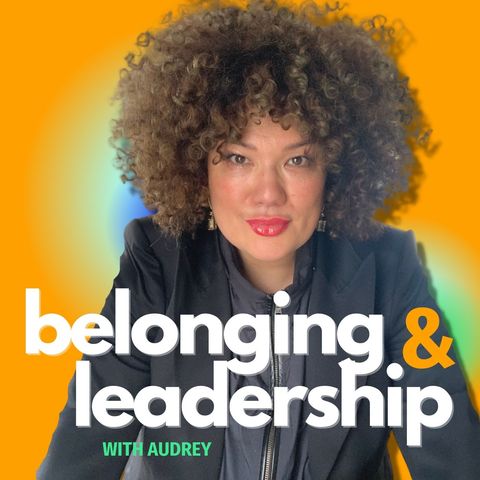Welcome to the unlikely leadership podcast with Audrey. And today is a special part one of a two part episode on a very powerful, timely and urgent dialogue of practices for us to be engaged in as leaders, which is trauma in leadership. How does trauma, historical trauma, recent family trauma, recent incident trauma, racial trauma, affect who we're being as we lead, and not just who we're being, but the outcome, the limits the patterns, the perpetual nature? Imagine, if a collective of us a critical mass of US leaders in all industries, touching 1000s upon hundreds of 1000s upon millions of lives, took on healing, what would be possible in that outcome? Resmaa Menakem is a healer, author, master coach and trauma specialist. He helps people communities and organizations heal from and build resilience around historical and racialized trauma through body centered psychology. He is a best selling author, a New York Times bestselling author of several books, including my grandmother's hands racialized trauma and the pathway to mending our hearts and our bodies, a deep exploration of how trauma affects us all. It combines theory and analysis with practical strategies for healing ourselves. Now, what you're going to hear and find is that the ability to metabolize trauma that is located store sickly in our bodies, is not a big aha moment. It is actually small practices over time, almost like siphoning out something I would imagine, right? So, grab a journal or a notebook, lean back, open your mind and your body for this two part conversation. Please stay tuned after the guest discussion for skill highlights. www.AmplifyVoices.io About Our Guest In addition to his work as a writer and therapist, Resmaa focuses his expertise on coaching other leaders to learn this embodied approach, including police chiefs, nonprofit executives, CEOs, athletic directors and managers, government leaders and many more. “While we see anger and violence in the streets of our country, the real battlefield is inside our bodies,” he says. “If we are to survive as a country, it is inside our bodies where this conflict needs to be resolved.”
show less


Comments